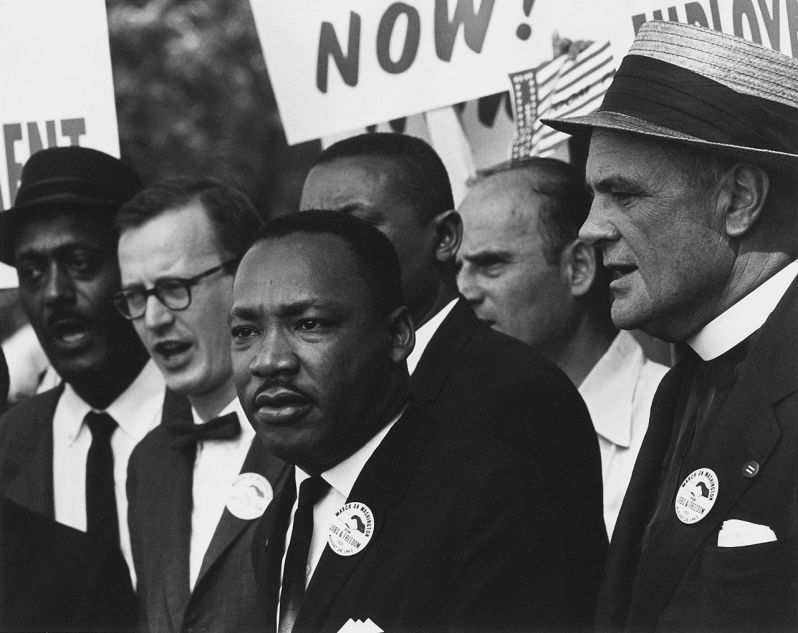On 6 August 1946, the Atlanta Constitution published a letter to the editor from a 17-year-old black student at Morehouse College signed “ML King, Jr”. The letter was prompted by the murders of five black men in Georgia: US Army veteran Maceo Snipes, shot for daring to exercise his right to vote in an election, and a few days later, two couples, George W and Mae Murray Dorsey, and Roger and Dorothy Malcom, killed by a mob on the Moore's Ford Bridge between Monroe and Watkinsville. The student wrote:
“I often find when decent treatment for the Negro is urged, a certain class of people hurry to raise the scarecrow of social mingling and intermarriage. These questions have nothing to do with the case. And most people who kick up this kind of dust know that it is simple dust to obscure the real question of rights and opportunities. It is fair to remember that almost the total of race mixture in America has come, not at Negro initiative, but by the acts of those very white men who talk loudest of race purity. We aren’t eager to marry white girls, and we would like to have our own girls left alone by both white toughs and white aristocrats.
“We want, and are entitled to, the basic rights and opportunities of American citizens: The right to earn a living at work for which we are fitted by training and ability; equal opportunities in education, health, recreation, and similar public services; the right to vote; equality before the law; some of the same courtesy and good manners that we ourselves bring to all human relations.”
That letter to the newspaper would launch the public and political career of the future Dr Martin Luther King, Jr, the legendary man of the era. He went on to lead a public campaign that would change basic attitudes in American society, making racism unacceptable and shameful throughout the world, and making the word "Negro" – as black slaves were called in the USA – taboo among civilised people. Twenty-two years later on 4 April 1968 he was assassinated at the age of 39 by James Earl Ray. The court admitted that the killer acted of his own accord but the crime got swept up to become part of a spate of political assassinations around that time including that of President John F Kennedy in 1963.
Source:
Thomas F. Jackson, “From Civil Rights to Human Rights: Martin Luther King, Jr., and the Struggle for Economic Justice”, University of Pennsylvania Press, 2007
























